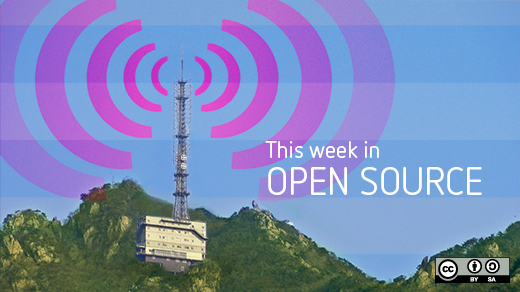In this week's edition of our open source news roundup, we take a look at IBM's flexible mainframes with Golang, Mozilla keeps FireFox OS in play for IoT, and other news.
Open source news roundup for January 9 - 15, 2016
IBM targets flexible mainframes with Golang
IBM is making the Go programming language—commonly known as Golang—available on its mainframes. Golang was developed by Google and is designed to make it easy to build simple, reliable and efficient software. It excels at network applications where a high degree of concurrency is required. It can also be used in High Performance Computing (HPC) environments.
Because Docker is written in Go, IBM's z Systems can integrate more closely with Docker. Both z Systems deployment and the HPC market are growing, so this is a good move for IBM.
Mozilla bets on open source IoT computer
fossBytes reports that although Mozilla is killing Firefox OS for smartphones the project will continue and be used extensively on connected and IoT devices.
Mozilla is working an IoT single-board computer called Chirimen that will embed the Firefox OS. Chirimen is being developed by MozillaFactory.org in Japan as a development board for web developers for making IoT devices by utilizing the capabilities of Firefox OS. "CHIRIMEN Board is designed for Web developers to MAKE Real things that are connected to the Web via Browser technologies," writes MozillaFactory website.
A payphone runs Linux
These days lots of folks are hacking various peices of hardware and using Linux to do it, but this one is very unusual. Anool Mahidharia writes in Hackaday that his payphone runs Linux.
The payphone was intended as a prop for a celebration of the 20th anniversary of the movie, "Hackers." So it was not really designed to make or receive calls but you can't have everything. By embedding a Raspberry Pi 2B in the phone and using some Perl code, Anool was able to simulate the phone making calls when the reciever was picked up. This interesting article describes how he accomplished this.
Open source software for health devices
Karen Sandler, a self described "cyborg lawyer" is executive director at Software Freedom Conservancy (SFC)—a charity that helps promote and defend free and open source software. She has a heart condition that requires a pacemaker but it contains closed source software that could not be audited to determine whether it was capable of handling her extra "complication"—a pregnancy. Unfortunately that oversight on the part of the pacemaker programmers caused serious problems for her and her fetus. Sandler says, "It really brings home the fact that if you don't have control over the software that you rely on it can be really problematic."
Sandler points out that our lives are all dependent upon software in almost every device we use. "The average luxury car has 100 million lines of code in it. The Software Engineering Institute estimates that one bug is introduced for every 100 lines of code. It's really scary to think about." Even light bulbs are connected these days.
Sandler's work is aimed at getting companies to respect existing open source software. Ensuring compliance with licenses can be a thankless job and has led to funding issues for SFC. However, making the software in devices open source, and ensuring compliance with open source licenses can mean that software can be audited and shown to be safe for use in cases like hers.
In other news
Thanks, as always, to Opensource.com staff members and moderators for their help this week. Make sure to check out our event calendar, to see what's happening next week in open source.







Comments are closed.